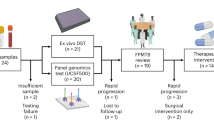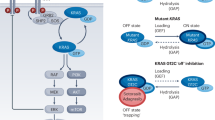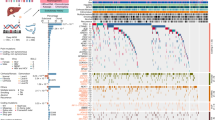Abstract
The Hippo pathway regulates tissue growth and cell fate. In colon cancer, Hippo pathway deregulation promotes cellular quiescence and resistance to 5-Fluorouracil (5-Fu). In this study, 14 polymorphisms in 8 genes involved in the Hippo pathway (MST1, MST2, LATS1, LATS2, YAP, TAZ, FAT4 and RASSF1A) were evaluated as recurrence predictors in 194 patients with stages II/III colon cancer treated with 5-Fu-based adjuvant chemotherapy. Patients with a RASSF1A rs2236947 AA genotype had higher 3-year recurrence rate than patients with CA/CC genotypes (56 vs 33%, hazard ratio (HR): 1.87; P=0.017). Patients with TAZ rs3811715 CT or TT genotypes had lower 3-year recurrence rate than patients with a CC genotype (28 vs 40%; HR: 0.66; P=0.07). In left-sided tumors, this association was stronger (HR: 0.29; P=0.011) and a similar trend was found in an independent Japanese cohort. These promising results reveal polymorphisms in the Hippo pathway as biomarkers for stages II and III colon cancer.
This is a preview of subscription content, access via your institution
Access options
Subscribe to this journal
Receive 6 print issues and online access
$259.00 per year
only $43.17 per issue
Buy this article
- Purchase on Springer Link
- Instant access to full article PDF
Prices may be subject to local taxes which are calculated during checkout


Similar content being viewed by others
References
Edge S, Byrd DR, Compton CC, Fritz AG, Greene FL, Trotti A AJCC Cancer Staging Manual. Springer: New York, 2010.
Andre T, Quinaux E, Louvet C, Colin P, Gamelin E, Bouche O et al. Phase III study comparing a semimonthly with a monthly regimen of fluorouracil and leucovorin as adjuvant treatment for stage II and III colon cancer patients: final results of GERCOR C96.1. J Clin Oncol 2007; 25: 3732–3738.
Andre T, Boni C, Navarro M, Tabernero J, Hickish T, Topham C et al. Improved overall survival with oxaliplatin, fluorouracil, and leucovorin as adjuvant treatment in stage II or III colon cancer in the MOSAIC trial. J Clin Oncol 2009; 27: 3109–3116.
Dean M, Fojo T, Bates S . Tumour stem cells and drug resistance. Nat Rev Cancer 2005; 5: 275–284.
Polyak K, Weinberg RA . Transitions between epithelial and mesenchymal states: acquisition of malignant and stem cell traits. Nat Rev Cancer 2009; 9: 265–273.
Song H, Mak KK, Topol L, Yun K, Hu J, Garrett L et al. Mammalian Mst1 and Mst2 kinases play essential roles in organ size control and tumor suppression. Proc Natl Acad Sci USA 2010; 107: 1431–1436.
Lu L, Li Y, Kim SM, Bossuyt W, Liu P, Qiu Q et al. Hippo signaling is a potent in vivo growth and tumor suppressor pathway in the mammalian liver. Proc Natl Acad Sci USA 2010; 107: 1437–1442.
Zhao B, Wei X, Li W, Udan RS, Yang Q, Kim J et al. Inactivation of YAP oncoprotein by the Hippo pathway is involved in cell contact inhibition and tissue growth control. Genes Dev 2007; 21: 2747–2761.
Halder G, Johnson RL . Hippo signaling: growth control and beyond. Development 2011; 138: 9–22.
Harvey K, Tapon N . The Salvador-Warts-Hippo pathway - an emerging tumour-suppressor network. Nat Rev Cancer 2007; 7: 182–191.
Mori M, Triboulet R, Mohseni M, Schlegelmilch K, Shrestha K, Camargo FD et al. Hippo signaling regulates microprocessor and links cell-density-dependent miRNA biogenesis to cancer. Cell 2014; 156: 893–906.
Harvey KF, Zhang X, Thomas DM . The Hippo pathway and human cancer. Nat Rev Cancer 2013; 13: 246–257.
van Engeland M, Roemen GM, Brink M, Pachen MM, Weijenberg MP, de Bruine AP et al. K-ras mutations and RASSF1A promoter methylation in colorectal cancer. Oncogene 2002; 21: 3792–3795.
Richter AM, Pfeifer GP, Dammann RH . The RASSF proteins in cancer; from epigenetic silencing to functional characterization. Biochim Biophys Acta 2009; 1796: 114–128.
Touil Y, Igoudjil W, Corvaisier M, Dessein AF, Vandomme J, Monte D et al. Colon cancer cells escape 5FU chemotherapy-induced cell death by entering stemness and quiescence associated with the c-Yes/YAP axis. Clin Cancer Res 2013; 20: 837–846.
Yuen HF, McCrudden CM, Huang YH, Tham JM, Zhang X, Zeng Q et al. TAZ expression as a prognostic indicator in colorectal cancer. PLoS One 2013; 8: e54211.
Wang Y, Xie C, Li Q, Xu K, Wang E . Clinical and prognostic significance of Yes-associated protein in colorectal cancer. Tumour Biol 2013; 34: 2169–2174.
Wang L, Shi S, Guo Z, Zhang X, Han S, Yang A et al. Overexpression of YAP and TAZ is an independent predictor of prognosis in colorectal cancer and related to the proliferation and metastasis of colon cancer cells. PloS One 2013; 8: e65539.
Barry ER, Morikawa T, Butler BL, Shrestha K, de la Rosa R, Yan KS et al. Restriction of intestinal stem cell expansion and the regenerative response by YAP. Nature 2013; 493: 106–110.
Irvine KD . Integration of intercellular signaling through the Hippo pathway. Semin Cell Dev Biol 2012; 23: 812–817.
McShane LM, Altman DG, Sauerbrei W, Taube SE, Gion M, Clark GM et al. REporting recommendations for tumour MARKer prognostic studies (REMARK). Eur J Cancer 2005; 41: 1690–1696.
Chan SW, Lim CJ, Chen L, Chong YF, Huang C, Song H et al. The Hippo pathway in biological control and cancer development. J Cell Physiol 2011; 226: 928–939.
Cordenonsi M, Zanconato F, Azzolin L, Forcato M, Rosato A, Frasson C et al. The Hippo transducer TAZ confers cancer stem cell-related traits on breast cancer cells. Cell 2011; 147: 759–772.
Lee PH, Shatkay H . F-SNP: computationally predicted functional SNPs for disease association studies. Nucleic Acids Res 2008; 36: D820–D824.
Bauer KM, Hummon AB, Buechler S . Right-side and left-side colon cancer follow different pathways to relapse. Mol Carcinog 2012; 51: 411–421.
Des Guetz G, Schischmanoff O, Nicolas P, Perret GY, Morere JF, Uzzan B . Does microsatellite instability predict the efficacy of adjuvant chemotherapy in colorectal cancer? A systematic review with meta-analysis. Eur J Cancer 2009; 45: 1890–1896.
Du J, Ji J, Gao Y, Xu L, Xu J, Zhu C et al. Nonsynonymous polymorphisms in FAT4 gene are associated with the risk of esophageal cancer in an Eastern Chinese population. Int J Cancer 2013; 133: 357–361.
Wu C, Xu B, Yuan P, Miao X, Liu Y, Guan Y et al. Genome-wide interrogation identifies YAP1 variants associated with survival of small-cell lung cancer patients. Cancer Res 2010; 70: 9721–9729.
Donninger H, Barnoud T, Nelson N, Kassler S, Clark J, Cummins TD et al. RASSF1A and the rs2073498 cancer associated SNP. Front Oncol 2011; 1: 54.
Acknowledgements
The project described was supported in part by award number P30CA014089 from the National Cancer Institute. The content is solely the responsibility of the authors and does not necessarily represent the official views of the National Cancer Institute or the National Institutes of Health. AS is a recipient of a Juan Rodés contract from the Instituto de Salud Carlos III (JR14/00006). SS is a recipient of the Erwin Schrödinger Fellowship Grant from the Austrian Science Fund.
Author information
Authors and Affiliations
Corresponding author
Ethics declarations
Competing interests
The authors declare no conflict of interest.
Additional information
Supplementary Information accompanies the paper on the The Pharmacogenomics Journal website
Supplementary information
PowerPoint slides
Rights and permissions
About this article
Cite this article
Sebio, A., Matsusaka, S., Zhang, W. et al. Germline polymorphisms in genes involved in the Hippo pathway as recurrence biomarkers in stages II/III colon cancer. Pharmacogenomics J 16, 312–319 (2016). https://doi.org/10.1038/tpj.2015.64
Received:
Revised:
Accepted:
Published:
Issue Date:
DOI: https://doi.org/10.1038/tpj.2015.64
This article is cited by
-
Origin and evolution of animal multicellularity in the light of phylogenomics and cancer genetics
Medical Oncology (2022)
-
Genetic variations in Hippo pathway genes influence bladder cancer risk in a Chinese population
Archives of Toxicology (2020)



